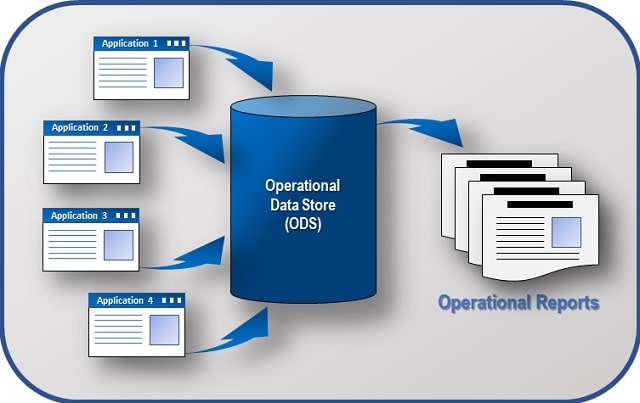
Cookie-cutter website builders made it easy and inexpensive for the novice to set-up their own websites. As the number of entrepreneurs and small businesses has increased, so has the demand for improved technology. This has created a competitive market for web hosting.
Ten years ago people stayed with the same hosting companies because it was too big of a burden to recreate their website. Also, some companies made it difficult for customers to switch their domain when they decided to change website host providers.
Today it is easier to make a switch but there are still things consumers should understand before choosing a new website host.
Are you thinking about switching to a new hosting service? Keep reading for 10 things you should understand before making a move.
What Does It Mean to Change Website Host?
Unless you hired a website developer to build your website from scratch using coding, you're probably using a web builder platform. This is a service that makes it easy for anyone to have a website for a fraction of the cost a developer would charge.
The companies use apps and software to create the sites and then rent the space for your site's placement on the World Wide Web. Most will offer an initial free website domain address, which you can later renew on your own. The website itself is parked on a platform and governed by the platform's rules and regulations.
Hosting sites offer much of the same but there are a few things that set some apart from the rest of the pack.
Here is how to select the best choice for a website hosting company.
1. Ease of Transition
The website host doesn't want you to leave. The competition is stiff, and they will try to convince you of all the evils that will happen if you move. The truth is you are not actually moving the website, you are moving your domain name.
It is best to follow the steps provided by the website host. If they tell you to go through your current provider that is a red flag. The new hosting service should want to help you with the transition.
The process can take up to a week to complete.
2. The Registration Process
Registration for the new hosting site should be relatively easy with no long contracts to sign. Providing your contact information and agreeing to the terms and services is really all there is. If someone requires you to sign long, lengthy documents, seek legal counseling or search for a new hosting service.
Services like Blue Host And Hostgator are good examples of simplistic registration.
3. Cost at Renewal
Most hosting companies offer attractive deals to get people to sign-up for their services. Choosing a new website host can be influenced by the introductory price. Be very careful A year of hosting at $99 sounds good.
When it is time to renew, your bill will be double that amount or more. Also, verify how often a hosting service increases its annual rates.
4. Level of Customer Service
Trying to speak to an actual person in customer service is difficult for some providers. More often than not, your standard means of communication is a Q & A search, followed by an option to send a message to support.
If having access to a live representative is important to you research their customer service before you change website host. Live reps may only be available to their higher tier enterprise customers.
5. Reliability and Stability
When determining which website hosting company is a good choice don't forget to research their performance record. If your website is constantly down that is not a good thing.
Your customers will not blame the hosting company. They will believe it is a failure on your part.
There are several websites that track outages on web hosting sites.
6. How Long Have They Been in Business
The time in business is not always a good measure of how well a company will perform. With so many hosting sites on the market, it may be a better choice to go with an established platform. There will be more information available including reviews and recommendations.
An excellent if you change website hosting company is HostPapa. Looking for HostPapa coupon promo codes? Look no further and take advantage of these exclusive offers to get started on HostPapa today.
7. Applications Available
The average cookie-cutter web hosting site has apps to help you build the website you desire. The best sites will offer templates that are easily customizable and provide step-by-step instructions.
Depending on what you need, choosing a new website host could come down to the following apps:
- Booking
- eCommerce
- Social Media Integration
- Video capabilities
8. Security
Cybersecurity is at the forefront of everyone's mind. Whether you are a website holder or user, you want to ensure your data is safe. Consumers want to be reassured their financial information is safe when making a purchase on your website.
A good hosting platform will be intentional about promoting their safeguards against hackers and data breaches.
9. Search Engine Optimization
Search engine optimization drives visitors to your website. When changing website hosts ask if they have SEO tools to help with your digital marketing campaigns. This tool is essential for today's competitive climate.
If SEO is not a feature being offered, you will need to hire an SEO firm or learn how to incorporate techniques on your own.
10. Analytical Reporting
The last thing on our list of changing website hosting companies, but definitely not the least important, is analytics. In anything that you do, there has to be a means to measure its effectiveness. Website analytics are key to ensuring your website is dependable and profitable.
Determining which website hosting company is a good choice needs to include what types of reporting and insights their websites offer. Like SEO, if it is not provided you will have to incorporate your own methods.
Hosting Help: It Is Time to Move Your Website!
Now you are better informed on what to look for when you decide to change website host platforms. This is an important decision for your business web hosting and you must cover all of your bases.
Websites are an integral part of any business marketing plan. Check out our marketing and tech sections to gain more useful tips to drive sales.









